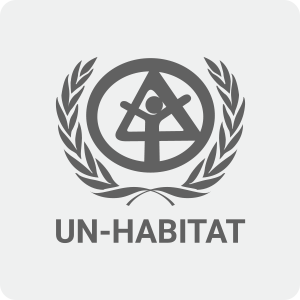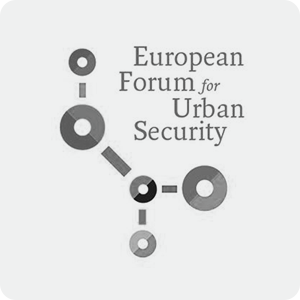THE TEAM
The team is a multi-national, multi-organisational team of urban safety practitioners with varied perspectives and focus areas, who are constantly grappling with the implementation and measurement of safety approaches.
THE TOOL
The Bigger Picture is designed as a global benchmark for safety and security in cities. The monitor is envisaged as a key tool to stimulate global, regional, national and critically, local awareness of the role of data, knowledge and evidence strengthening practice for improving safety in urban settings. The monitor indicators respond to a diverse range of safety interventions, from crime prevention through environmental design, to institutional capacity building and everything in between. The Bigger Picture is also a tool for advocacy, prompting cities to engage data and knowledge more actively, to use it to support evidence-led interventions and to understand local conditions and adapt as needed to meet them.
The USM is also a tool for advocacy, prompting cities to analyse data and acquire knowledge more actively, to use it to support evidence-led interventions and to understand local conditions and adapt as needed to meet them.
UN-Habitat Madrid and UN-Habitat Safer Cities hosted an Expert Group Meeting to engage mayors, city officials, academics, UNODC and urban safety and security practitioners on the importance of integrated, systemic local measurement of safety. Out of this engagement was born the Urban Safety Monitor, envisaged to be a comprehensive tool, adaptable to local circumstances in cities around the globe.
We consulted with local government officials and representatives of local and regional safety practitioner networks from a variety of global urban environments (Africa, Asia Pacific, Europe, North and South America). We conducted extensive research, with an emphasis on ensuring alignment with the Sustainable Development Goals, New Urban Agenda and UN Systemwide Guidelines for Safer Cities and Human Settlements, which resulted in the USM prototype.
We had the opportunity to expand our systemic perspective to ensure alignment with the principles and seven dimensions of the human security approach, through the evidence generated by the implementation of Human Security Participatory Appraisals in eThekwini Municipality in South Africa and Ciudad Juarez in Mexico. Through a bottom-up and community-based approach these appraisals allowed us to identify new indicators and integrate human security to global monitoring efforts. We then built the protoype into this beautiful website, which we have tested and consulted on with three regional networks of municipal safety practitioners in Canada, Europe and South Africa.
We plan to continue to monitor cities to check in on their experiences of using the tool, and to keep updating it to ensure that we are responsive to new learning, tools and perspectives as they emerge. We also hope to build the tool into a hub for learning exchange to support the global safety community to continue building our shared knowledge and strengthening our global safety practice and impact.
If you have any contributions you would like to make to this tool or this website, or require support implementing the approach, please contact us:
The diverse experience of the team ensures that the USM benefits from an inclusive range of perspectives from institutional and traditional quantitative measures such as crime statistics, to qualitative and more complex measures, including innovative wavs to incorporate valuable lived experience in assessing the intricacies of urban safety.
Click the logos for more information on our team



PROMOTING THE DEVELOPMENT OF SOCIALLY AND
ENVIRONMENTALLY SUSTAINABLE CITIES.
Crime and violence have impacts on the everyday life of city residents. Women and children are often the most affected, especially when fear hinders their access to services. The impacts of crime and insecurity restrict urban social and economic development, and often jeopardize opportunities and pro-poor policies. With twenty-three years of experience, the Safer Cities programme has implemented effective urban safety programmes in 77 cities and towns in 24 countries around the world. The approach embraces a more holistic and participatory solution to reduce or prevent crime and violence. It supports cities and towns in adopting city-wide urban safety strategies and action plans, building on socially inclusive and participatory approaches that contribute to a safer and just city for all.
Safer Cities has evolved to embrace a human security approach, integrating all aspects of urban safety and resilience. The Bigger Picture aims to better understand the way that this systemic approach can be measured – and how indicators should inform strategies.
PROMOTING A HOLISTIC APPROACH TO URBAN SECURITY
Efus is the only European network dedicated to fostering discussion, cooperation and support among local and regional authorities in the field of crime prevention and urban security. Founded in 1987, it brings together nearly 250 cities and regions from 17 countries.
Efus has been instrumental in developing and implementing urban safety processes and protocols, combining ideas and innovations from across it’s membership and offering guidance and expertise in all aspects of urban safety including, importantly, indicators and assessment tools.
CONSULTING FIRM BASED IN JOHANNESBURG, SOUTH AFRICA
Fixed is a consulting firm based in Johannesburg, South Africa, working to strengthen transformation outcomes in the development arena. Fixed is focused on facilitating processes to address complex social problems through collaboration and communication. Fixed consults on urban safety, supporting and enabling sustainable and systemic collaboration, strategy, planning, implementation, assessment and adaptive learning. Fixed has a feminist bias, with experience in the field of women’s safety, including gender-based violence. Originally founded as Social Transformation Systems in 2010, Fixed has delivered solutions in diverse developmental contexts since 2017. Fixed works with international donors, national and local governments, international NGOs and cities, flexible to the needs of both client and circumstances, providing a principled approach, underpinned by integrity.